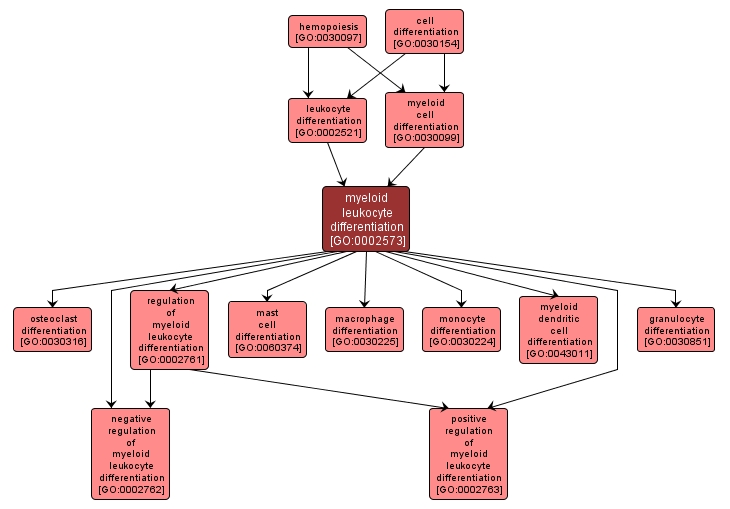GO TERM SUMMARY
|
| Name: |
myeloid leukocyte differentiation |
| Acc: |
GO:0002573 |
| Aspect: |
Biological Process |
| Desc: |
The process whereby a relatively unspecialized myeloid precursor cell acquires the specialized features of any cell of the myeloid leukocyte lineage. |
Synonyms:
- myeloid leucocyte differentiation
|
|

|
INTERACTIVE GO GRAPH
|














